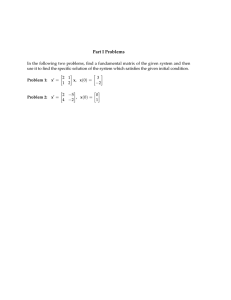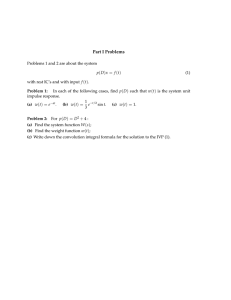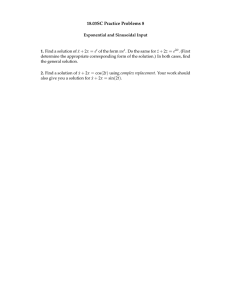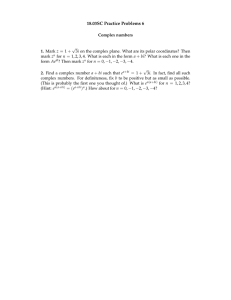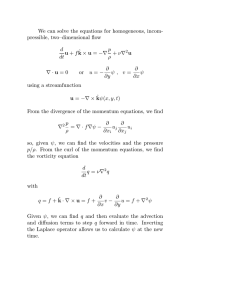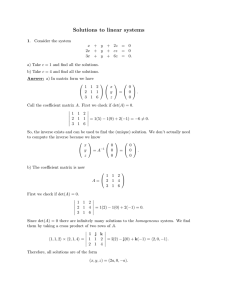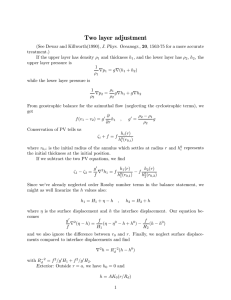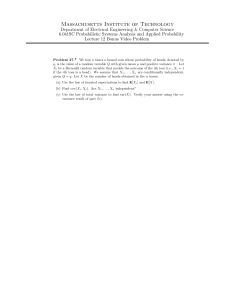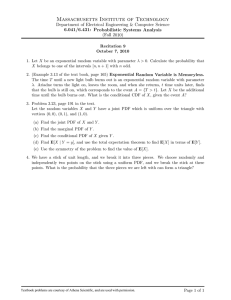Part = + (
advertisement
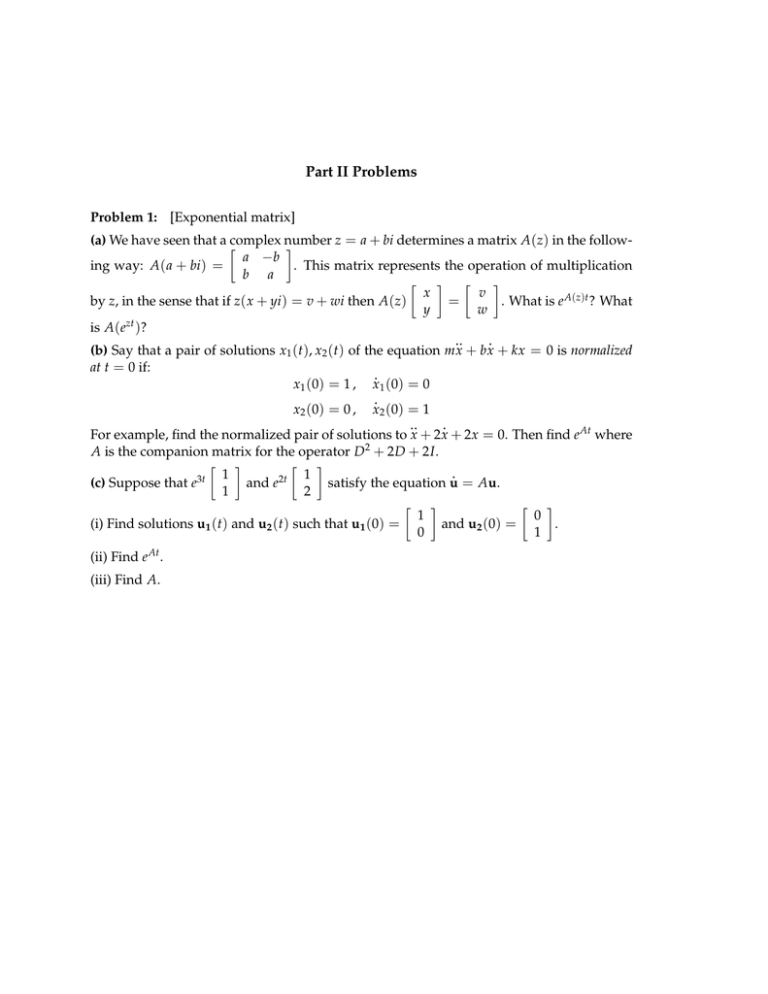
Part II Problems Problem 1: [Exponential matrix] (a) We have seen that a �complex number z = a + bi determines a matrix A(z) in the follow� a −b ing way: A( a + bi ) = . This matrix represents the operation of multiplication b a � � � � x v by z, in the sense that if z( x + yi ) = v + wi then A(z) = . What is e A(z)t ? What y w is A(ezt )? .. . (b) Say that a pair of solutions x1 (t), x2 (t) of the equation mx + bx + kx = 0 is normalized at t = 0 if: . x1 (0) = 1 , x1 (0) = 0 . x2 (0) = 0 , x2 (0) = 1 .. . For example, find the normalized pair of solutions to x + 2x + 2x = 0. Then find e At where A is the companion matrix for the operator D2 + 2D + 2I. � � � � . 1 1 3t 2t (c) Suppose that e and e satisfy the equation u = Au. 1 2 � � � � 1 0 (i) Find solutions u1 (t) and u2 (t) such that u1 (0) = and u2 (0) = . 0 1 (ii) Find e At . (iii) Find A. MIT OpenCourseWare http://ocw.mit.edu 18.03SC Differential Equations�� Fall 2011 �� For information about citing these materials or our Terms of Use, visit: http://ocw.mit.edu/terms.
